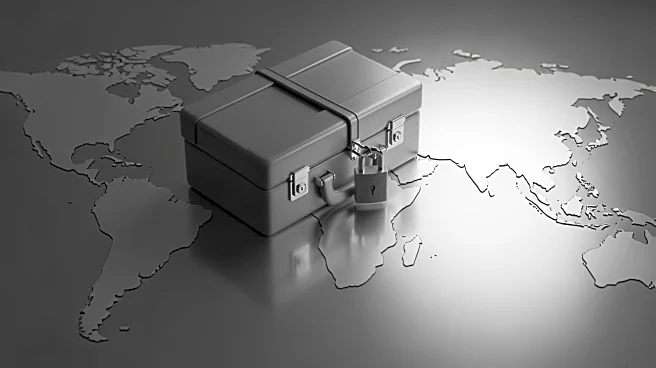What's Happening?
During his visit to Asia, President Trump sought a meeting with North Korean leader Kim Jong Un but was unsuccessful. Despite receiving gifts from South Korean and Japanese leaders, Trump was unable to rekindle
his previous relationship with Kim. North Korea has shifted its focus towards Russia, aligning with an anti-West bloc. Trump's public campaign for a meeting with Kim reflects his desire to maintain personal diplomacy, but North Korea's lack of interest suggests a change in its strategic priorities.
Why It's Important?
The inability to meet with Kim Jong Un highlights shifting geopolitical dynamics in Asia, with North Korea strengthening ties with Russia and China. This development could impact U.S. efforts to engage with North Korea and influence regional security. Trump's approach to diplomacy, relying on personal relationships, may face challenges as North Korea aligns with other global powers, potentially complicating U.S. foreign policy in the region.
What's Next?
Trump may continue efforts to engage with North Korea, but the changing geopolitical landscape suggests that traditional diplomatic channels may be more effective. The U.S. will need to reassess its strategy towards North Korea, considering its new alliances and the broader implications for regional stability.
Beyond the Headlines
The situation underscores the complexities of international diplomacy, where personal relationships may not always translate into strategic gains. It also highlights the importance of understanding the evolving priorities of global powers and adapting foreign policy accordingly.









